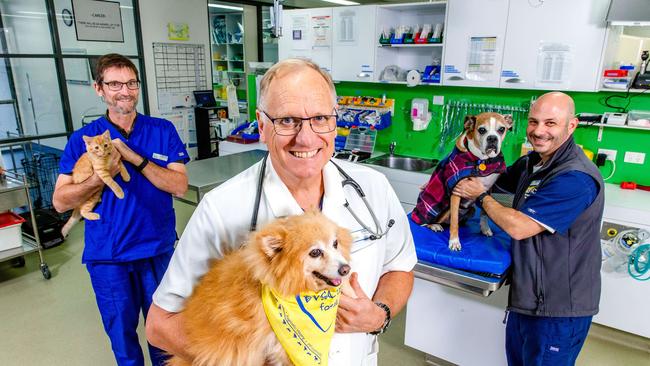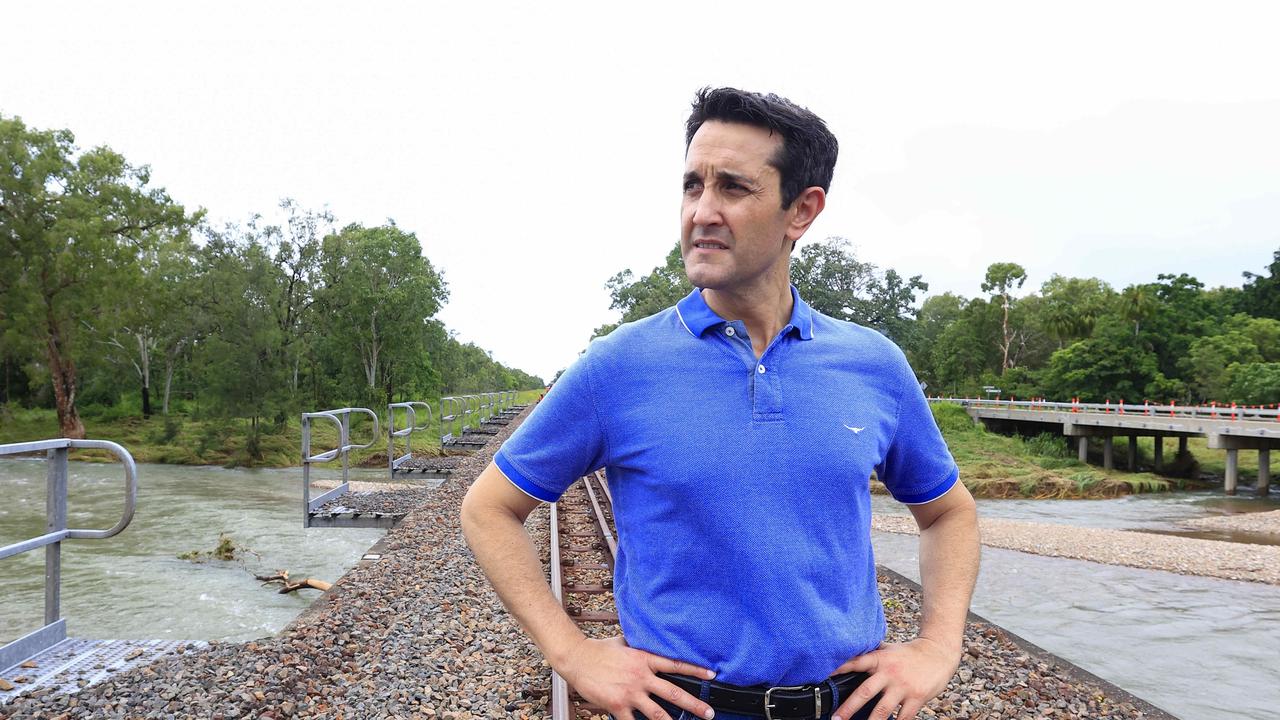What it’s really like to be a vet
Any pet lover knows just how invaluable a good vet is when your furry friend needs medical help. But getting up, close and personal to animals every day certainly has its challenges.

QLD News
Don't miss out on the headlines from QLD News. Followed categories will be added to My News.
THEY are the ones who save the lives of dogs and cats on death’s door at the hands of paralysis ticks, treat aggressive cancer in animals, and are there to hold a fluffy paw in the final moments of our pet’s lives.
Vets calling it quits after animal owners attack
Brisbane vets dealing with a puppy influx have revealed many should have never left the breeder
The wonders of veterinary science can be seen daily around the globe as animals are brought back to life, prosthetic legs are fitted to broken bodies crumpled by cars or through groundbreaking surgeries that give pets a quality of life previously unattainable in past decades.
In the Brisbane Veterinary Specialist Centre (BVSC), veterinarians use the state-of-the-art technology such as hyperbaric oxygen therapy chambers and the latest equipment for nuclear medicine with two I-131 treatments for cats with hyperthyroidism.
BVSC director Rod Straw, who has been a veterinarian for over 40 years, said each day treating animals has delivered different challenges and rewards.
“I can say the good times are because it has not been the same year of work repeated 40 times but over 40 challenging, interesting and rewarding years,” he said.
But the rewards of the job go hand-in-hand with both physical and mental challenges.

BVSC Radiation Oncology Specialist Elias Gumpel said when he tells people he treats cancer in animals for a living, one of the most common responses he gets is: “that must be so sad everyday to see animals with cancer”.
Yet, in another veterinary science marvel, most pets can now be saved from the ravages of cancer.
“While it’s true that a diagnosis of cancer is something no pet owner wants to get for their beloved pet, the fact is that the vast majority of pets with cancer can be treated very successfully and still get to enjoy an excellent quality of life with the right kind of treatment,” he said.
“We will ultimately have to make the difficult decision to say goodbye, but I see this as the final act of love and kindness that we can give to an animal in order to prevent unnecessary suffering and pain.
“When one looks at euthanasia from this viewpoint, you realise that it is the right thing to do when the time comes.”
Although some never plan to be a specialist when studying veterinary science, the job is like no other.
“I feel privileged now to be able to help animals, their owners and their vets with difficult problems,” BVSC Small Animal Internal Medicine Specialist Darren Fry said.


